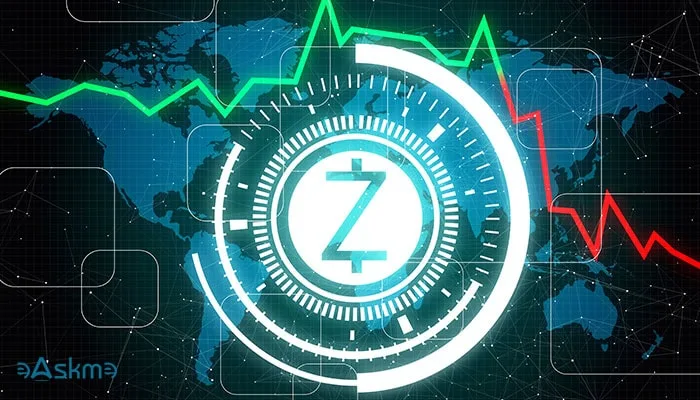Cybersecurity is the top thing to mention in your life. It is related to everything starting from private correspondence to business reports.
In general, people are informed enough about their privacy and security nowadays.
 |
| 7 Tips To Safeguard Your Business Online: eAskme |
But usually, business owners don't take potential threats seriously and ignore using high-quality digital solutions like professional software to protect their security.
As a result, most companies experience data leaks every year.
At the moment, there are many valuable tools for safeguarding business online. But, at the same time, technological developments have positive consequences.
Unfortunately, cybercriminals also develop illegal tools and tips to access the information they have no right to reveal.
That's why businesses must pay extra attention to online data security.
Why business cybersecurity is important?
Cybersecurity means a set of tools, actions, and software that aims to protect any business or organization from unauthorized access.
This complex solution is meant to prevent any illegal activity of frauds, hackers, and other cybercriminals.
Every company deals with essential data, including customers information, financial accounts, etc.
So the business owners have to take care of potential issues before they occur.
There are many reasons for safeguarding your business.
Here are the main ones to mention;
- Improve a company's productivity. Employees will work better if they know their working space is safe and secured;
- Prevent extra losses. With a protected network and corporate strategy, a company will avoid serious issues to cover;
- Make a website stable. Most companies use websites to develop their brands or to serve customers. So a stable website means a more secured service for customers;
- Highlighting the company's priority. Your customers want to feel free to rely on you. So they have to make sure you'll manage all security settings to make their data safe.
The main misconception is that only huge companies may be interesting for cybercriminals, so small companies have nothing to worry about.
The situation is the opposite: businesses face different cybersecurity issues more often nowadays.
No matter the number of employees and cash cycle, every company has to manage its online and offline data.
That's why safeguarding your business is a priority of all time.
Here is some good news.
Experts admit that 93% of cyberattacks may be avoided without causing issues for business.
A responsible approach and several efficient actions may protect any company from the dirty intentions of cybercriminals.
How to protect your business from cyberattacks?
This isn't easy to stay against an enemy in the shadows.
You don't know who the criminal wants to access your data and what he wants.
But there is nothing impossible. So keep in mind the following tips and make sure you are doing everything possible to safeguard your business.
Tip #1. Update your security software:
If you have installed high-quality applications to protect your files, emails, passwords, and other data, you have done an excellent job.
But remember that it's not enough.
Developers release regular updates to improve applications.
As a result, as an owner of your business, you must keep your eye on using current apps' versions.
Here are the main things about your security software you have to check:
- Manufacturers still support your current tools and services;
- You have enabled automatic updates in your system preferences;
Your employees use corporate or personal software on their gadgets supported by manufacturers and are constantly updating.
Tip #2. Make data backups:
People don't store their information on physical carriers in the modern world.
This is thoughtless because a small mistake or hack attack may delete all the valuable data.
Unfortunately, your business isn't an exception.
You must have a copy of all documents you may require anytime; that's why you need to make backups.
Decided which data to copy in different sources together with your team.
Depending on your business type and its sphere, such data may vary.
For instance, contacts of patients for a healthcare organization, annual reports for banks, etc.
Tip #3. Use 2FA everywhere it is possible:
2FA is two-factor authentication.
Using it, you don't allow users to log in to their accounts only by using their usernames and passwords.
This is the first step that the second authentication step must follow.
It could be sending a one-time code by SMS, using face control, and so on.
It is easy to enable 2FA on email services, banking accounts, cloud storage, accounting services, social media accounts, etc.
Besides, it's up to you to select the second step of authentication of every online entrance to the system.
This is one of the latest options to safeguard your business information and protect your customers' data.
In addition, it significantly decreases the risk of unauthorized access to critical information. A hacker must access initial data first to access valuable information.
Tip #4. Select a trusted cloud service:
This is a good idea to use the cloud service for your company's needs.
It allows you to store data easily and access them whenever you need it.
But not every platform is good enough.
Your business requires only reliable and trustworthy cloud service, so pick one wisely.
At the moment, there are plenty of options on the market.
You should read reviews and choose a cloud that opens you with suitable opportunities and protects your data.
Pay attention to the support and extra features.
For instance, a high-quality cloud service allows you to store different apps without purchasing them.
Anyway, most of them include special protection tools but keep an eye on the services quality and level of protection.
Before selecting the cloud provider, you should list your requirements.
For instance, a service should include 2FA.
Tip #5. Use anti-malware software:
Use anti-malware software to protect your devices that access your business reports, accounts, and other corporate data.
Thanks to its features, you can avoid viruses that cause the leak of secure information.
Remember that it's much better to prevent risks than to deal with the consequences of malicious software.
The simplest way to use efficient anti-malware software is to turn on Windows Defender on your devices.
Also, you can try other software made by trustworthy developers. In addition, you shouldn't allow your employees to use rooted devices.
Tip #6. Protect your network:
Consider the online connection that your company uses.
It includes both the connection going in and the connection going out.
This approach includes using a Firewall, Virtual Private Network, Web proxy, and so on.
It's important!
As your company grows day by day, all possible issues are growing too.
That's why you need to check the current status of your cybersecurity and develop it in advance.
Combining efficient tips in safeguarding and preventing potential treats is a perfect combo.
Tip #7. Have a plan 'B.':
Even if you have checked all potential threats and keep your security under control, you cannot predict the future.
There is a slight chance that you'll face cybersecurity attacks no matter all safeguarding efforts.
The possibility is extremely low, but it still exists.
You need to have a plan 'B' for such an unexpected situation. It should contain step-by-step guidelines for an unexpected issue.
Besides having a plan 'B,' it's also great to have a plan 'C.'
Who knows what a situation your company may face. Having alternative options can save your business.
Conclusion:
Cybersecurity in business is still underrated.
But thankfully, many owners and team leaders understand its importance to use proper tools to protect corporate data from hacking.
If you need software development services you can visit jatapp for the best solution.
So it's up to you to develop a new level of cyber protection in your company.
Use the listed above tips to make sure you, your employees, and your clients are safe!
BIO: Jenson O'Connell is an experienced content creator who writes on IT development and technology issues. He regularly publishes in many high-profile editions and helps his readers understand trends in the tech industry and programming infrastructure.
Still have any question, do share via comments.
Share it with your friends and family.
Don't forget to join the eAskme newsletter to stay tuned with us.
Other handpicked guides for you;






















